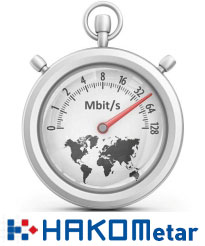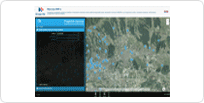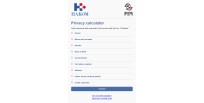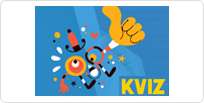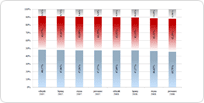Hakom - Croatian Post and Electronic Communications Agency
e-Agency
Users:
Cost Estimator
The Holder of Framework Programme
GIS portal
Privacy calculator
Application ''Quiz''
Market survey
HAKOM at the International Symposium ELMAR-2014
NEWSThe International Symposium ELMAR-2014 will include a special session on “New Trends in Spectrum Engineering“, including a presentation of the most recent scientific and professional achievements in the planning and efficient management of the RF spectrum.
ZAGREB, 10 September 2014 – The International Symposium ELMAR-2014 is taking place in Zadar from 10 to 12 September and it will include presentations of papers in different fields of electronics, multimedia and electronic communications. A special session on RF management organized by the Croatian Regulatory Authority for Network Industries (HAKOM) was included in the conference again this year. The objective of this special section is to .gather representatives of operators, industry and the academic community and present research activities in this area, with a special emphasis on research on the development of cognitive radio, development of new wireless, mobile and broadcasting technologies, planning and use of the digital dividend and the similar
The special session entitled “New Trends in Spectrum Engineering“ will include papers in the area of RF management, including the issues of use, frequency planning and cross-border coordination of the RF spectrum, as well as issues concerning the introduction of new technologies, the conditions of co-existence and protection of various radiocommunications systems. Mr. Thomas Weber from the European Communications Office (ECO) of the European Conference of Postal and Telecommunications Administrations (CEPT) was invited by HAKOM to speak about activities of European umbrella institutions, with s special emphasis on cognitive radio and short-range devices (SRD). Lectures will also be given by HAKOM’s experts, Ana Katalinić Mucalo on regulatory aspects of the introduction of MIMO links (Overview of the regulatory aspects for the deployment of Line of Sight MIMO for fixed links) and Miran Gostan on spectrum efficiency used by implementation of new broadcasting technologies (Spectum efficiency achieved by the implementation of DVB-T2 with H.264/AVC and H.265/HEVC).
Efficient management of the RF spectrum, as a limited natural resource, is a very important aspect for the development and implementation of new services and technologies and it is managed by HAKOM as the independent national regulatory authority. In this manner, HAKOM continues its successful cooperation with representatives of the academic community and the industry, and serves as a link with European regulatory institutions.
More information about the conference is available at the following link http://www.elmar-zadar.org/2014/The special session entitled “New Trends in Spectrum Engineering“ will include papers in the area of RF management, including the issues of use, frequency planning and cross-border coordination of the RF spectrum, as well as issues concerning the introduction of new technologies, the conditions of co-existence and protection of various radiocommunications systems. Mr. Thomas Weber from the European Communications Office (ECO) of the European Conference of Postal and Telecommunications Administrations (CEPT) was invited by HAKOM to speak about activities of European umbrella institutions, with s special emphasis on cognitive radio and short-range devices (SRD). Lectures will also be given by HAKOM’s experts, Ana Katalinić Mucalo on regulatory aspects of the introduction of MIMO links (Overview of the regulatory aspects for the deployment of Line of Sight MIMO for fixed links) and Miran Gostan on spectrum efficiency used by implementation of new broadcasting technologies (Spectum efficiency achieved by the implementation of DVB-T2 with H.264/AVC and H.265/HEVC).
Efficient management of the RF spectrum, as a limited natural resource, is a very important aspect for the development and implementation of new services and technologies and it is managed by HAKOM as the independent national regulatory authority. In this manner, HAKOM continues its successful cooperation with representatives of the academic community and the industry, and serves as a link with European regulatory institutions.
# # #
For additional information please contact:
Croatian Regulatory Authority for Network Industries (HAKOM)
Roberta Frangeša Mihanovića 9
10110 Zagreb, Croatia
Tel. + 385 (0)1 700 70 07
Fax + 385 (0)1 700 70 70
Media inquiries can be submitted online using HAKOM’s official website: https://www.hakom.hr
Registration required.
ABOUT HAKOM:
HAKOM (www.hakom.hr) - Croatian Regulatory Authority for Network Industries – ensures preconditions for a fair market competition, stable growth and environment for innovations in the electronic communications and postal services market. HAKOM protects users’ interests and the possibility of choice among various communications and postal services at affordable prices, defines sustainable competitive conditions for operators and service providers under fair conditions for return on investment, and provides support to economic growth, public services and the quality of life in the Republic of Croatia by using modern technologies. HAKOM’ strategic goals are: to promote regulation of the electronic communications and postal services market, to support growth of investments and innovations in the electronic communications and postal services market, to provide efficient use of limited resources, to accelerate the growth of broadband products and services, to provide affordable offers of communications and postal services, to provide protection and informing of users, to build an efficient and comprehensive information system, to define and implement efficient processes, and to acquire multi-disciplinary competencies in market regulation.


